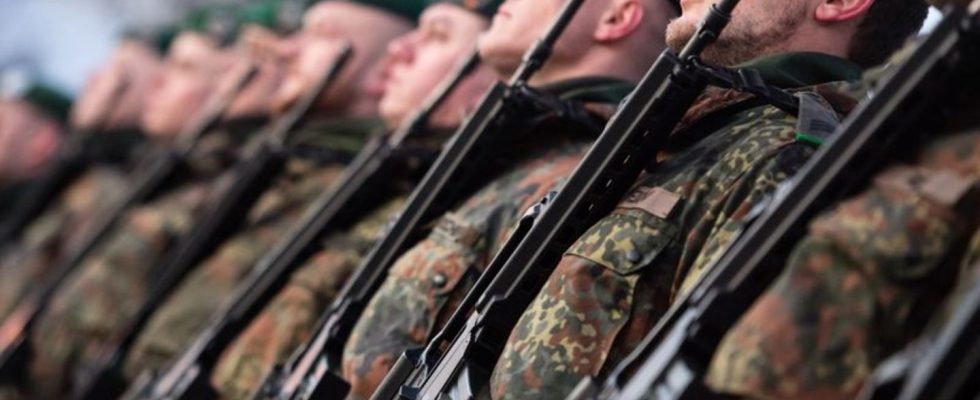armed forces
Pistorius: Stationing in Lithuania important for NATO
For the Lithuanians, Germany’s deployment of troops is a desired reassurance of NATO’s obligation to provide assistance. photo
© Matthias Balk/dpa
The Bundeswehr is opening a new chapter on NATO’s eastern flank. An advance command is intended to prepare the stationing of a combat-ready brigade in the eastern NATO country.
By moving an incident command to Lithuania, the Bundeswehr is taking another important step towards permanently stationing a combat brigade on NATO’s eastern external border.
Defense Minister Boris Pistorius Pistorius described the start of the deployment as an important step for the alliance’s ability to deploy. “This is an important day for the Bundeswehr. This is the first time that we are permanently stationing such a unit outside of Germany,” said the SPD politician at the farewell to the Lithuanian Brigade’s advance command. The approximately 20 soldiers are intended to create the conditions for the transfer of additional soldiers.
“I know there is still a lot to do, including on site. The infrastructure has to be right, the barracks have to be there, the accommodation, the apartments,” said Pistorius. And: “There is still a lot to be done on the Lithuanian side and we – I can assure you – will do everything we can to equip the brigade the way it needs to be equipped right from the start.”
According to the timetable, the brigade should be operational by 2027
In response to the changed security situation in Europe, the Federal Government has agreed to relocate a combat unit to Lithuania that is ready for combat and able to act independently. According to the timetable, the brigade should be operational by 2027. A permanent presence of around 4,800 soldiers and around 200 civilian Bundeswehr members who can bring their families with them is planned.
The Defense Ministry in Berlin announced that the incident command was traveling to Lithuania together with the army inspector, Lieutenant General Alfons Mais. In Vilnius, the first forces of the Lithuania Brigade would be welcomed by the recently appointed Lithuanian Defense Minister Laurynas Kasciunas.
The incident command is expected to grow to a formation staff of around 150 men and women by the fourth quarter of 2024. The army brigade will be reorganized in Lithuania with the name Panzerbrigade 45. After the brigade is officially commissioned in 2025, the additional forces are expected to begin deployment that year, provided the required infrastructure is available in Lithuania.
Reinsurance of the NATO assistance obligation
We will be watching with interest to see whether and how the Lithuanians are making progress with the creation of the promised infrastructure. This includes military areas and barracks as well as apartments and houses. The soldiers and their families will live in Vilnius and Kaunas, where a school and a kindergarten are to be built. The Lithuanian government had pushed for the stationing. A special commission had already been set up to prepare it, and since the end of March a deputy minister in the Ministry of Defense has been responsible for the brigade’s reception.
Lithuania borders Russia’s ally Belarus and Russia’s Baltic Sea enclave of Kaliningrad. A narrow land corridor runs between the two countries from Lithuania west to Poland – NATO’s so-called Suwalki Gap, over which fighting could break out in the event of an attack. For the Lithuanians, Germany’s deployment of troops is a desired reassurance of NATO’s obligation to provide assistance. In surveys, the vast majority of the population supports the permanent presence of German soldiers.

